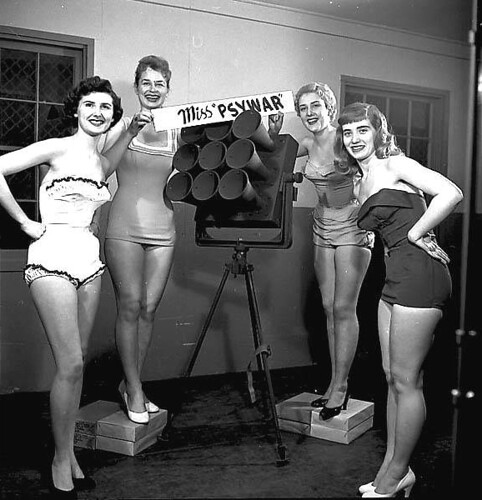 Gobble, gobble.
Gobble, gobble.This word, "consumer," is of a more recent vintage than other haunted words. Unlike "labor," it does not go back into the pre-history of language. In fact, you can see its usage history here, if you'd like (great site). When we see the word's base, "consume," prior to the 20th century, it is always with "destroy" implied, and "waste" actually denoted. It was in the 1970's that the word got into the collective Business head. (This time, I do not plan to attack business schools.) I can remember, as a child, people objecting to the term. "How dare you call me a consumer," people said.
They don't say that anymore.
 Nor do I wish to act as if we need to run for our aluminum foil deflector beanies. No. My point is merely to discuss the term itself, what corpse it carries with it into our mouths and minds, and the effect of speaking and thinking such defilement on us may be. (Photo at right shows, incidentally, and I mean incidentally, some of the difficulties we should have had already. Go to its source and read that essay, if you'd like.)
Nor do I wish to act as if we need to run for our aluminum foil deflector beanies. No. My point is merely to discuss the term itself, what corpse it carries with it into our mouths and minds, and the effect of speaking and thinking such defilement on us may be. (Photo at right shows, incidentally, and I mean incidentally, some of the difficulties we should have had already. Go to its source and read that essay, if you'd like.)Conceiving of the consumer, inventing the consumer as an abstracted force in economic transactions, performs the same moral deferral that "labor" does. A crime against your neighbor would be punished by the neighbor, by the state, and by your conscience, but an action against "labor" is "necessary" by "laws" of "the market." In other words, each of these forces that is cited as a compulsion is an abstraction derived inferentially from repeated observations of actual exchanges of goods. An historian, essentially, observes how exchanges have gone, analyzes and infers common principles, and these descriptions are presumed to be predictive of future exchanges. From this scientific basis, we get such concepts -- all linguistic shorthand for massive assumption and deduction -- as "labor, production, material, consumer," and then we act according to "laws of the market" that are not laws. They are habits of humans. Humans are only partly predictable.
I would never cost my neighbor his job, but I can feel morally absolved by "market forces" and laws, even though these forces and laws are people en masse. The moral action on my part has been absolved by numbers, not by a real force. (I'm trying to avoid being obvious or obscure. What I mean is that "the market" does not let me off the hook. The "market" does not exist. It is simply a description of a mass of people and a set of assumptions about their behavior. The morality of actions remains, whether there is a market present or not. You still fired people.)
If a side effect of abstractions like "labor" and "consumer" and "manager" is to create a false sense of laws and forces that will absorb the impact of moral actions, then it is because each word carries extra freight. None of these words is innocent. None is actually a pure economics term. Each one has something strapped to its back. In the case of "labor," it is "uneducated, obdurate, obstreperous." With "manager," it is "executive, brain, judgment." What is it with "consumer?" What does using the word "consumer" do to our moral acts after it has given us a giant marshmallow to absorb the good and evil of them?
 Ah, Bosch. The Garden of Earthly Delights
Ah, Bosch. The Garden of Earthly DelightsA "consumer" is a glutton. Gluttony is, of course, a sin. It is a sin in nearly every faith on earth. It is a sin in non-faiths, too. In Christianity, gluttony includes eating too much and simply wasting substance. In Buddhism, it is attachment. In Hiduism, the same. In Islam, the same as Christianity, and in Judaism, it is forbidden. In contemporary culture, gluttony means fat, and fat is bad, but, then again, it is alright if it is in the name of being a consumer, because over consumption is wealth.
A consumer creates nothing. A consumer is an end point for culture. A consumer is a toilet, a garbage can, and a dump. It is an efficient absorber. Now, we all know and accept the truth that no consumer consumes completely, that there is waste, but when we accept the term "consumer," we accept the inherent quality of the big bad wolf who 'ate them all up.' We also accept the fact that being a consumer is being sinful, that consumers are making demands, that consumers are baby birds screeching, mouths open and eyes closed, for more, more, more.
From Thorstein Verblein's thesis in The Theory of the Leisure Class, we have moved on considerably. For him, the leisure class was a form of actual class structure. Since those days, our productive model has inverted. Luxury has become increasingly cheap, and staple goods have become increasingly dear. There is no question that an iPod/Pad is a luxury good, that a 4G phone is a luxury, and yet those are cheap in real dollars, while housing has moved up in real dollars of income for average income. This is because leisure and luxury do not constitute class any longer, but basics do.
When a company makes its product and its managers make decisions (for the dumb hands and feet and mouths that are incapable of 'executive' function), it considers "the consumer." It wants to know how to appeal to the consumer, not how to serve the consumer, how to be known to the consumer, not pleasing to people, how to offer perceived value per unit to the consumer, rather than quality goods for long use, and they want to build brand loyalty among consumers rather than consistent products. By considering this creature -- this vaccuous, voracious and wicked thing called "the consumer" -- as a target for psychological analysis, focus group study, predictive statistics and the like, the company is treating people with contempt, ignoring their product, and focusing on an amoral universe that must be immoral.
Why must a society ordered around labor, management, and consumers be immoral? It must be because the one using the term is included in the term. The problem with the analysis is that same as the morality: there is no way to remove the observer. The producer is a consumer. The manager is labor. The consumer is a producer. The company that has scorn for consumers and works hard to psych them out is being targeted by a supplier, and the executive goes home to be targeted by a luxury maker or a staple maker, and the whole country turns into a game of liar's poker where no one can win the stakes.
Then again, some people just prefer to steal.

3 comments:
I love your observations about "luxury" and staple goods -- I hadn't thought of things that way, but you're exactly right. I also didn't know the history of the word "consumer" before -- what a revelation! Thanks.
I had a wonderful reply that went away.
I feel like these posts are boring, and, as I said, alternating between twee philosophy and dull obviousness. However, there is a single, rational driver.
1. Economics is valid enough, but it is built on many observations that lead to concepts that are abstract. 2. When we speak of these abstractions as though they were living or had identity or had force, then we make two grievous mistakes. The first is that we think irrationally, because we are then inverting the inductive/deductive process and dictating to reality how to behave. The second is that we are using these abstractions and concepts to mitigate our morality.
In the case of the consumer, I feel like we have an inverse of Verblein's world.
So, in Verblein's world, a rich person could become an aristo by wasting money. Well, if we think of plutocrats in the Adirondacks, it makes sense, but that message -- ostentatious display = superiority -- was all over America. Waste was richness. The incentive was thus there for people to climb by showing luxury, and for the world of America to produce luxury goods, time saving devices, and other penny wise gadgets.
All of that is fine, except that land, housing, and food went into fewer and fewer hands, as Adam Bygar Smith and warned and Karl Youbetcha Marx had predicted. Thus, the "welfare queen" with her hypothetical Cadillac. Thus the "trailer trash" with every convenience. Ostentatious display is easy. Living is hard.
It's why my "power and glory" post could exist, and none of it is possible without a continuing lie.
Post a Comment